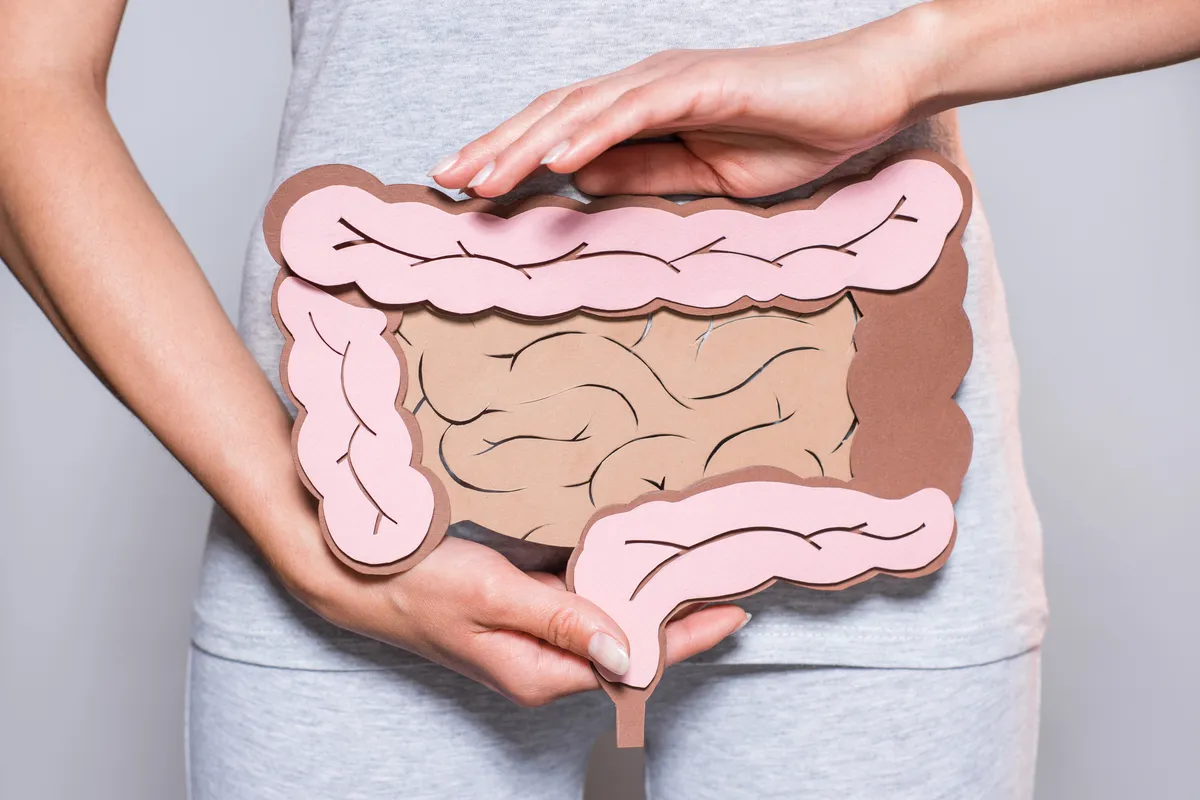Colorectal cancer: what is it and what are its symptoms?
Colorectal cancer, or colon cancer, is a cancer that develops in the lower part of the digestive tract. It is one of the most commonly diagnosed cancers worldwide and the likelihood of developing it increases with age. Risk factors include genetics, age, lifestyle and, most importantly, diet.
Symptoms of colorectal cancer can be varied and often non-specific. They most commonly include changes in bowel function, such as diarrhoea or constipation, blood in the stool, weight loss for no apparent reason, weakness and fatigue, and abdominal pain or cramps that do not go away. Early detection of the disease significantly increases the chances of successful treatment, so regular screening is important, especially for those at high risk.
Dietary fibre and colon health
Dietary fibre supports the proper functioning of the colon in a number of ways. A diet rich in fibre, mainly from vegetables, fruit, whole-grain cereals and legumes, has been linked to a reduced risk of colorectal cancer. One of the main mechanisms by which fibre exerts its beneficial effects is by improving intestinal peristalsis and facilitating regular bowel movements. This, in turn, contributes to a faster removal of potentially carcinogenic substances from the gastrointestinal tract, reducing their contact time with the intestinal mucosa.
In addition, fibre influences the composition of the gut microbiome, promoting the growth of beneficial bacteria that can protect against cancer. Bacteria ferment fibre, producing short-chain fatty acids (SCFAs) such as butyric acid, propionic acid and acetic acid. SCFAs have anti-inflammatory properties, support the integrity of the intestinal barrier and may inhibit the growth of cancer cells. Butyrate, in particular, is an important source of energy for intestinal epithelial cells and exhibits anticancer effects by regulating the expression of genes involved in the cell cycle and apoptosis (natural, programmed cell death).
Regular consumption of fibre helps to maintain a healthy body weight, which also reduces the risk of cancer. Obesity and being overweight are known risk factors for many types of cancer, including colorectal cancer. Dietary fibre increases feelings of satiety, which can lead to lower calorie intake and help with weight management. A diet rich in fibre is often associated with an overall healthier lifestyle and better food choices, further supporting cancer prevention.
Red and processed meat consumption and colorectal cancer risk
Studies show that high consumption of red and processed meat is associated with an increased risk of colorectal cancer. Red meat, such as beef, pork and lamb, contains compounds that can turn into carcinogens when cooked at high temperatures. Processed meat, such as sausages, bacon and cold cuts, contains preservatives and chemical additives that can also increase the risk of cancer.
It is recommended that you limit your intake of red meat to less than 500 grams per week and avoid processed meat . Instead, it is advisable to introduce more alternative sources of protein into your diet, such as poultry and fish, as well as those of plant origin, such as legumes, nuts and seeds.
The importance of fruit and vegetables in the prevention of colorectal cancer
Vegetables and fruit are rich in vitamins, minerals, fibre and antioxidants, which can protect against bowel cancer. Antioxidants include vitamin C, vitamin E and beta-carotene; they help neutralise free radicals that can damage cells and lead to cancer. In addition, some vegetables, for example broccoli, cauliflower and Brussels sprouts, contain sulphur compounds that have strong anti-cancer properties.
Eating a wide range of fruit and vegetables every day is essential for maintaining bowel health and preventing bowel cancer. It is recommended to eat at least five portions of fruit and vegetables a day to provide yourself with essential nutrients and to support the health of the whole body.
Dietary fats
The type of fats consumed in the diet has a significant impact on the risk of colorectal cancer. Saturated fats, found in red meat, processed foods and dairy products, may be responsible for increased cancer risk. Beware also of trans fats, which are found in margarines and many processed foods.
The healthier fats, i.e. mono- and polyunsaturated fats, found in olive oil, avocados, nuts, seeds and oily fish, have a protective effect on the body. Omega-3 fatty acids, which are most easily found in fish such as salmon, mackerel and sardines, have anti-inflammatory properties and are highly protective against cancer. Including them in the diet can help reduce the risk of colorectal cancer.
Impact of diet on the health of the gut microbiome
The gut microbiome, the complex community of micro-organisms that inhabit our intestines, is largely responsible for the health of the digestive tract and can influence the risk of colorectal cancer. A diet rich in fibre, vegetables, fruit and fermented foods such as yoghurt and kefir supports a healthy microbiome by promoting the growth of beneficial bacteria.
Conversely, a diet low in fibre and high in processed foods, red meat and sugars can unbalance the microbiome, cause inflammation and increase the risk of cancer. Supporting the gut microbiome through an adequate diet is essential to maintain gut health and reduce the risk of colorectal cancer.
Diet has a significant impact on the risk of colorectal cancer. Eating plenty of fibre, vegetables and fruit and limiting red and processed meat can reduce the risk of cancer. Implementing healthy eating habits is an effective way to protect bowel health and prevent cancer.

